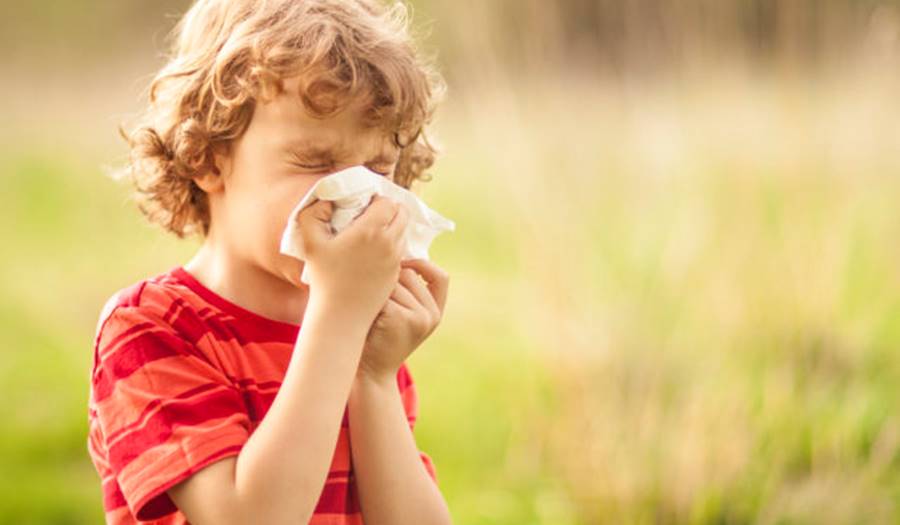
Seasonal Allergies
5/1/2020
Does your child have a runny nose, sneeze, and rub their eyes? Does it occur year-round or seasonally? Your child may have allergies. Allergies are a reaction to an inhaled substance known as an allergen. Allergens include pollens from trees, grass, or weeds; molds; pets, and house dust. Seasonal allergies occur in patterns related to when the allergen is present. For example, tree pollen allergies are in the spring, grass pollen allergies are in the summer, and weed pollen allergies are in the fall. Allergies to molds, pets, and house dust are year-round.
Symptoms of allergies include:
- clear nasal discharge
- itchy eyes
- sinus congestion
- scratchy throat
- tickle in the throat
- itchy ears
- itchy skin
- hoarse voice
Allergies can also exacerbate asthma symptoms including wheezing and coughing.
Allergies can occur at any age. Seasonal allergies do not occur until you have 2 seasons of exposure so often not before the age of 2. Allergy symptoms peak during school age, teen, and young adult years. If both parents have allergies, a child has a 60-70% chance of developing allergies.
How can I treat my child’s allergies?
There are medications that can help your child minimize their allergy symptoms. These include antihistamines, nasal corticosteroids, and immunotherapy. Antihistamines and corticosteroids work to reduce allergy symptoms. These medications can be purchased over the counter. You may be able to use your FSA, HRA, or HSA accounts to make these purchases (as of 2020 they no longer require a prescription to purchase using these accounts). If you remember to start your child’s allergy medication before their allergy season begins, it can reduce the time it takes for the medication to “kick in” and your child’s symptoms may be better controlled.
Antihistamines:
Antihistamines help suppress the effect of histamine on the tissue. Histamine makes tissues swell, itch, and produce mucus. Antihistamine medications include Zyrtec (Cetirizine), Claritin (Loratadine) or Allegra (fexofenadine). These medications come in liquids, chewables, and tablets and are given once or twice a day. They work well if taken at night reducing the drowsiness that some people experience with these medications. Also, because allergy symptoms peak in the morning, night time dosing ensures you have the most amount of medication working in your body when you need it most.
Eye drop antihistamines to help with itching eyes if the oral antihistamines do not reduce all eye symptoms. These medications include Zatidor, Alaway, Zyrtec, and Claritin eye drops (Ketotifen). These drops can be used up to twice a day as needed but for severe symptoms, but the drops will work better if taken daily.
Corticosteroids:
Corticosteroids include Flonase (Fluticasone), Rhinocort (budesonide), and Nasacort (triamcinolone). These medications are highly effective in treating allergy symptoms. To
administer the nasal corticosteroid, squirt one spray into each nostril once a day. The best way to take a nasal spray is to have your child put their “NOSE TO TOES”, squirt once in each nostril, then have them do a “BUNNY SNIFF”. Inhaled corticosteroids work better if you take it every day during your allergy season.
Immunotherapy:
Immunotherapy is done by a specialist called an allergist. The allergist injects a small amount of the allergen into your body to help your body learn to become less reactive to that allergen. “Allergy shots” start off frequently, usually weekly, and spread out over time. These can take 3-5 years to fully work.
What else can I do to help reduce allergy symptoms?
There are a number of things you can do to help your child reduce seasonal allergy symptoms:
- keep windows closed on high allergen days
- use air conditioning instead of opening a window • play inside if pollen counts are high
- shower immediately after playing outside
- shower before bed
- do not dry linens or clothing outside
There are also changes you can make to reduce dust, pet, and mold allergies:
- use mattress and pillow encasement/coverings
- vacuum and dust bedrooms/house regularly
- wash sheets and bedding every 1-2 weeks in hot water
- limit stuffed animals in the bedroom
- control mold in a home with humidifiers
- consider mold remediation
- do not let pets sleep on the bed with your child or in their room
Although we can’t escape allergies, we can help our children live more comfortable lives through environmental changes and medications. If you have any questions about your child’s allergy symptoms or allergy medications, please call Children’s Health Care at 978-465-7121, 978-388-9880 or 978-373-6557.
Children’s Health Care of Newburyport, Massachusetts, and Haverhill, Massachusetts provide comprehensive pediatric health care from birth through adolescence. Our child-centered and family-focused approach covers preventative and urgent care and specialist referrals including an on-site pediatric nutritionist, special needs care coordinator, and social workers. We provide care for families across the North Shore, Merrimack Valley, southern New Hampshire, and the Seacoast regions.
Disclaimer: this health information is for educational purposes only. You, the reader, assume full responsibility for how you choose to use it.








